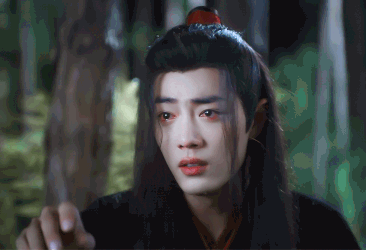So, I made a thing. I heard
that ‘80s song about 44 women, and I decided to write…
88 LINES ABOUT 44 WOMEN WRITERS
Enheduanna was a poet
From four thousand years ago,
Sappho, too, wrote lyric lines
For lovers we may never know
Murasaki’s Tale of Genji
Might be the first novel ever,
Hildegard knew plants and music,
Mystical and wise and clever
Héloïse became a scholar,
Writing reams to Abelard,
Veronica the courtesan
Penned poems earning high regard
Aphra was a spy and playwright,
Boldly blazing cagey trails,
Marie-Catherine charmed the salons
With her retold fairy tales
Mary wrote on rights of women,
Did her gender proud and fine,
And her daughter, also Mary,
Gave the world a Frankenstein
Jane created Mr. Darcy,
Satirized society,
George’s books (or Mary Anne’s)
Show kindness and variety
Elizabeth, she loves thee, let her count the ways,
Her romance soars,
Charlotte gave us Rochester
And Jane Eyre out upon the moors
Emily is famed for Heathcliff,
Turbulent and dark and grim,
Anne wrote with more realism,
Sensible and calm and prim
Christina held a Goblin Market,
Lovely, eerie, and fantastic,
George romanced Chopin and kept her
Gender expression elastic
Harriet, with Uncle Tom,
Helped to encourage abolition,
Emily wrote eighteen hundred
Poems despite her shy condition
Louisa and her little women
Still cause us to rhapsodize,
Edith scored the Pulitzer,
The first woman to win the prize
Virginia urged a room of one’s own
For all women who would write,
Colette captivated France
As actor, novelist, playwright
Lucy Maud, she brought us Anne,
Now we all love Green Gables Farm,
Gertrude’s streams of consciousness
Challenge as they also charm
Agatha’s detectives make her
Outsell all the rest of us
Young Anne writing from an attic
Had faith in the best of us
Simone wrote of politics,
And culture, existentially,
Daphne’s stories (see Rebecca)
Gained fame exponentially
Anaïs’ journals
And erotica are wise and stirring
Flannery has Southern whimsy
With plenty of grace recurring
Harper’s Scout and Atticus
Have earned spots in posterity,
Maya told the truth of life
With starkness and hilarity
Shirley scared the hell out of us
With Hill House and other stories,
Octavia gave us a glimpse
Into the future’s trials and glories
Dorothy’s witty verse could cut you,
Every line a wicked smirk,
Gabriela taught and wrote
And earned the Nobel for her work
Mary wrote beloved poems,
Nature-loving and inspiring,
Isabel crafts magic novels,
Of her whimsy we’re admiring
Judy helped us all get through
Puberty with lessened pain,
Toni’s prose on race and life
Earns her fame; long may she reign
Ursula took us from Earthsea
To new planets far away,
Margaret’s handmaids made us shiver
May her wisdom light our way!
Women referenced:
1. Enheduanna
2. Sappho
3. Murasaki Shikibu
4. Hildegard of Bingen
5. Héloïse d’Argenteuil
6. Veronica Franco
7. Aphra Behn
8. Marie-Catherine Le Jumel de Barneville, Baroness d'Aulnoy
9. Mary Wollstonecraft
10. Mary Shelley
11. Jane Austen
12. Mary Anne Evans (George Eliot)
13. Elizabeth Barrett Browning
14. Charlotte Bronte
15. Emily Bronte
16. Anne Bronte
17. Christina Rossetti
18. George Sand
19. Harriet Beecher Stowe
20. Emily Dickinson
21. Louisa May Alcott
22. Edith Wharton
23. Virginia Woolf
24. Colette
25. Lucy Maud Montgomery
26. Gertrude Stein
27. Agatha Christie
28. Anne Frank
29. Simone de Beauvoir
30. Daphne du Maurier
31. Anaïs Nin
32. Flannery O’Connor
33. Harper Lee
34. Maya Angelou
35. Shirley Jackson
36. Octavia Butler
37. Dorothy Parker
38. Gabriela Mistral
39. Mary Oliver
40. Isabel Allende
41. Judy Blume
42. Toni Morrison
43. Ursula K. LeGuin
44. Margaret Atwood












